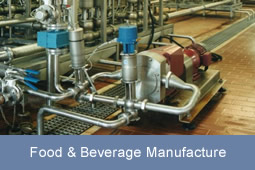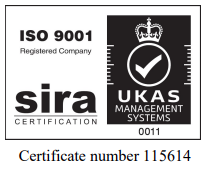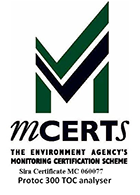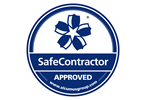The food and drinks industry will be one of the very first sectors that will need to comply with the new Integrated Pollution Prevention and Control (IPPC) regulations.
By 2004, individual members of the industry will need to be ready to apply for an IPPC permit, having taken positive steps to prevent, reduce and eliminate pollution at source through the efficient use of natural resources.
Larger companies in the food and drinks industry will have some familiarity with what will be required, since the new IPPC regulations are built on current IPC regulations. However, IPPC will also introduce regulations in new areas such as waste management and site protection.
Being one of the very first sectors to be expected to meet IPPC regulations, the food and drinks industry is naturally at a disadvantage. It has less time to prepare and cannot learn from the experiences of other sectors of industry. Effective solutions have to be found and put into use now.
Fortunately, there are existing, well-proven technologies available which can assist you - and simultaneously offer you considerable cost savings too.
IPPC requires effective waste management and the minimising of pollutants. These two factors don't just make good environmental sense - they make good economic sense for you too: wasted product is wasted money. It's literally money down the drain. Discharge costs and treatment costs are likewise reduced if you can cut the amount of pollutants you produce.
So how can you achieve this? How do you discover which processes are wasteful and adding to your discharge levels?
The answer lies in the careful, continuous monitoring of your drains and outfall for spikes in contaminant levels. If you know precisely when and where excess waste is being dumped into the drains, you can most likely identify which machine, or which process, has caused it. Then you can take action.
The problem has meant that the two most commonly used methods of water pollution monitoring - the BOD and COD tests - are not up to the level of monitoring required. Neither test can be conducted on line or in real time. BOD tests typically take five days to achieve results from a sample, and even much faster COD tests are still not quick enough to help you catch and recognise an event.
The only test capable of offering continuous real time monitoring is the TOC - Total Organic Carbon test. TOC monitoring can be performed in real time, on-line giving detailed, minute to minute coverage of events as they occur. This means it can pick up fast, transient spikes caused by a faulty machine for example, and help to identify the source of the waste.
The implications of on-line TOC monitoring are obvious. If you can identify and eliminate wasteful processes, you can save money on product. If the product isn't being dumped into the drains, your discharge costs will be reduced, offering even more cost savings. This is good business sense, but there are even bigger implications. If you can use TOC monitoring to cut waste product and discharge levels, it can obviously help you in preparing for IPPC.
One company which has been quick to recognise the role TOC monitoring will play in helping industry prepare for IPPC is Severn Trent Water. The company has pioneered services to industry in this field, helping companies to move towards IPPC compliance while actually helping them to achieve significant cost savings at the very same time. The company is so confident that it can help industry make big savings that it is not charging a flat fee, but only a percentage of the money it helps to save!
Since December 2000, Severn Trent Water has been working with Coors Brewers at the company's Burton site near Birmingham. The aim of the partnership is not just to achieve 100% compliance with IPPC but also to help reduce costs and maximise benefits from the capital investment. To do this it has created a strong process template, which has been utilised to great effect on the site and has been accepted by the customer as being at the forefront of best practice.
"We look at waste in the following ways," explains Terry Duffy, Project Manager at Severn Trent Water: "What it is, where it comes from, how it gets there, where does it end up - and how can we reduce it."
Coors Brewers, Burton had already recognised the benefits of having TOC analysers on-line on-site and had purchased four PROTOC® analysers from PPM in the recent past. One had been positioned on the final discharge to identify any surges and alarm so that the surge could be safely diverted. Others had been positioned on the common discharge from the brew houses, on the common discharge from two filter rooms and on another part of the final discharge.
Whilst the technology was in place, what Coors Brewers lacked was a strategy for analysing what the PROTOC® units were really telling them. Severn Trent Water provided this expertise and appraised several months of data recorded by the PROTOC® analysers to identify and eliminate the causes of the peak TOC readings - which often represented, product being lost down the drain. Some were mechanical failures, or instances of human error. Other events were a result of timings or pressures being incorrectly set.
Now that the causes of waste were being identified, Coors Brewers could rectify them. This quite naturally, excited them enough to install another three PROTOC® analysers to help track down other potential sources of wastage on site.
At this point it's only reasonable to ask why so many PROTOC® analysers were utilised. Why wasn't one analyser put on-line in one place, process faults detected and then the analyser moved on to the next position? The answer is that the analysers continued to more than pay for themselves when left in-situ. It was found that, over a three month period, the cost saving achieved halved when the analyser was removed. Why? Because new problems could occur after the analyser was removed, such as a machine fault or human error. Coors Brewers and Severn Trent Water found it a far more economical option to leave the analysers in place and continue to pick up any new problems immediately as they arose.
For example, another Coors Brewers site fitted with PROTOC® analysers achieved a 40% reduction in wasted product. The analyser was then removed. Three months later, savings were only running at 20%. When the analyser was reintroduced, savings returned to 40%.
PPM has gone some way towards reducing the capital costs of introducing multi-location TOC analysis on larger sites with its unique Spyder and Web system which can offer considerable cost savings for users requiring multi-point effluent monitoring, triple validation or 100% stream monitoring. Standard PROTOC® analysers feature both integral control and analysis equipment. However, one PPM SPYDER control unit can control AND monitor up to eight low-cost WEB analyser units networked together. Both are based on PPM's best-selling PROTOC® technology, but WEB analysers cost considerably less than individual PROTOC® units. Each WEB unit offers dedicated TOC analysis well as a choice of three additional monitoring functions which may include pH, flow, and turbidity.
By all accounts, Coors Brewers has been very impressed by the service offered by Severn Trent Water using PPM PROTOC® analysers. "Far from the IPPC legislation being a threat, working towards the legislation with Severn Trent Water has produced many benefits, namely reduced environmental impact and reduced financial risk," says Barry Goodwin from Coors Brewers. "We've achieved considerable annual costs savings and 96% consent compliance already."
Utilising on-line TOC technology to achieve IPPC compliance is a win-win situation. Not only is it a fast, reliable and effective method of identifying waste and helping to reduce discharge levels - uniquely so in fact - but it can also more than pay for itself along the way by helping to cut treatment costs and cutting out wastage.
With IPPC only a couple of years away for the food and drinks industry, the combination of proven TOC technology and the expertise of companies like Severn Trent Water who have now fully realised the benefits of TOC analysis, is surely one of the best ways to ensure compliance.
For further information on how PPM can support your instrumentation requirement please contact:
Steven Tuck
Pollution & Process Monitoring Ltd
Tel: 01732 882044
Fax: 01732 780190
Email: s.tuck@pollution-ppm.co.uk








